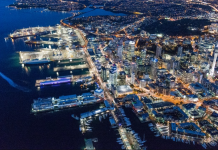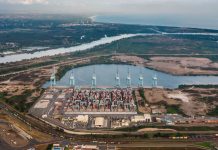
Port Sudan had been witnessing severe crippling of operations after protests blocked it for ten days straight. The interim government of Sudan, a country caught in political turmoil, referred to the protests as part of a failed coup attempt.
The protestors had blocked the main road connecting the port city to the rest of the country since 17 September. The isolation and blockage resulted in the closure of container and oil export terminals, as well as the duty-free markets.
As a result, vital revenues coming from the port’s box terminals to the Bank of Sudan have been blocked, often hailed as life support for the worn-torn country.
The protests, headed by the High Council of Beja Nazirs, had broken out in Eastern Sudan over the Juba Peace Agreement signed in October last year. The group claimed to have been left out of the peace deal which aims at resolving decades of conflicts and setting up a full civilian rule.
The disruptions that have followed the protests threatened to halt the economic recovery of the country after years of recession under dictatorship due to sanctions imposed on the country. Port Sudan handles 90% of the African country’s foreign trade and has witnessed an exceptional growth of 70% in containerised exports during the first half of the year.
The evening on 26 September marked a turn in events as Khartoum Sovereignty Council announced that talks with protestors had resulted in positive results and that exports would resume through the port of Bashair.
Khartoum said in a statement, “As a result of a meeting between a government delegation led by Sovereignty Council member General Kabashi and a delegation from the Beja Council, South Sudanese exports were allowed to pass through the port of Bashir.”
Ankur Kundu
Correspondent





